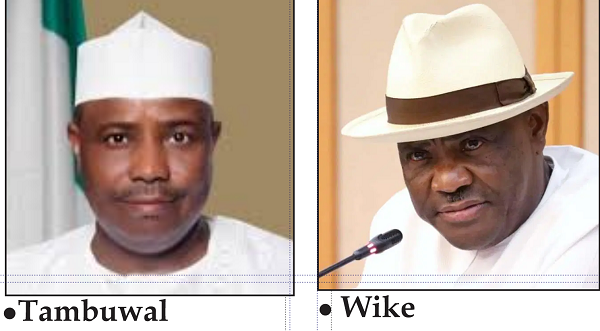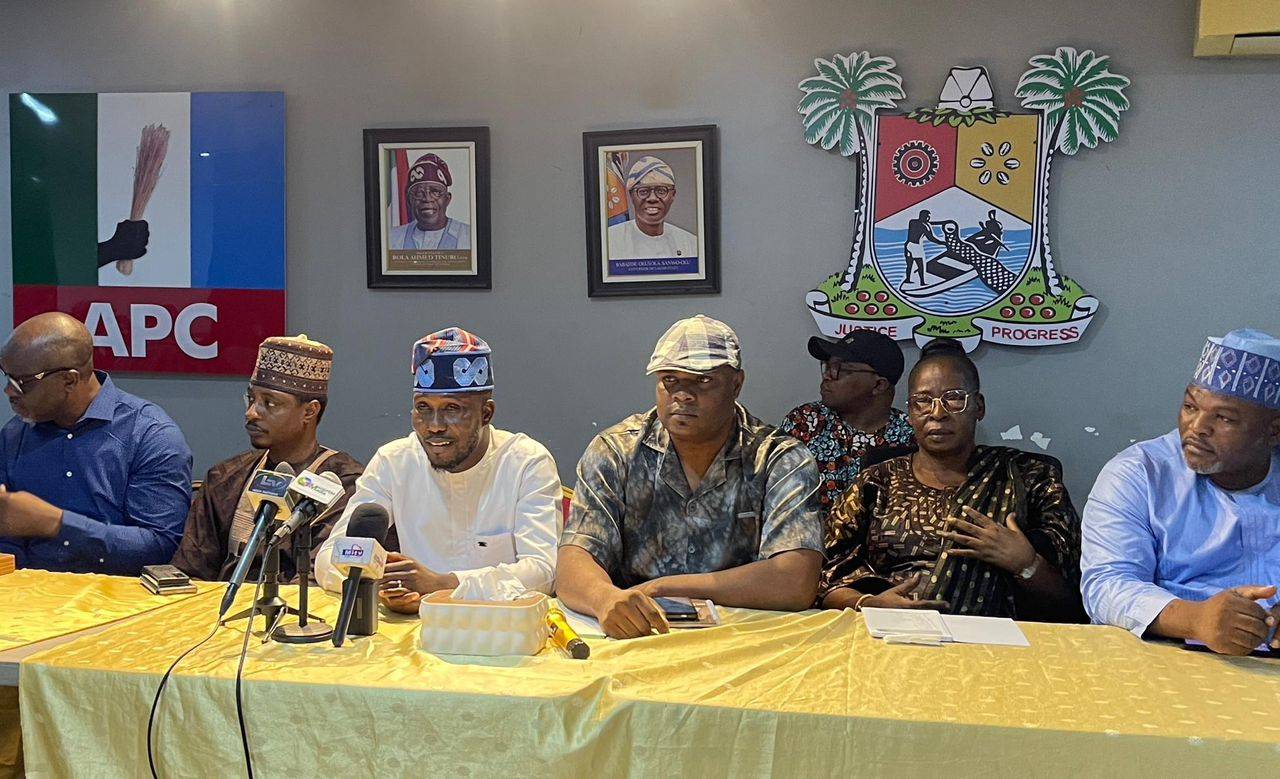By Palladium
Last week, Nasiru Aliyu Dan Tsoho, Sokoto State commissioner in charge of lands, housing, survey and town planning, passed a curious and evocative judgement on the administration of former governor Aminu Tambuwal. In summary the commissioner considered the former governor unfit for leadership even at the lowest level. “Aminu Waziri Tambuwal shouldn’t have been a Local Government Chairman let alone a governor, talk less of being the President of the Federal Republic of Nigeria, a futile ambition that consumed his time and attention,” he snorted angrily. “He was unfair to the people of Sokoto State. He ought to have left hand-over records which would guide the new government but did not…Those who want to see the true picture of Aminu Waziri Tambuwal should come to Sokoto state, we will take him or her round and also show them facts and figures, site and even sounds from the public of his disastrous eight years as governor. Whoever wants to see the footprint of the real Aminu Waziri Tambuwal should come to Sokoto State. We will take him round, even to his own hometown of Tambuwal, that he failed to keep his promise to dualize the roads within the town…So, if I say that Aminu Tambuwal took the state backwards by 20 years it’s not an overstatement.”
This column passed the same judgement on the Tambuwal governorship barely a few years into his eight years rule. It is reassuring that little by little, many analysts are beginning to turn their minds in the direction of the variables that qualify a person or politician for leadership. Mr Dan Tsoho’s summation may be scathing and coloured by the long-standing animosity between the current governor Ahmad Aliyu and his predecessor, Mr Tambuwal, to whom he was deputy for about three years before resigning in 2018, but the stridency of the commissioner’s conclusions are not diminished by the temperaments of Government House intrigues. Too little attention has been paid to the subject of succession in Nigeria, whether at the federal, state or local government level. But the matter deserves a lot of attention, and gradually, especially after the depredations of the Olusegun Obasanjo years, Nigerians may start to recognise that their fortunes are tied to their leaders. At his exit in 2007, a two-term limit he regretted bitterly, Chief Obasanjo gave the country the Umaru Yar’Adua/Goodluck Jonathan condominium. Apart from health and confidence challenges respectively, neither had demonstrated the qualities of great leadership. But they were foisted on Nigeria with disastrous consequences. Years later, in 2015, the country again bought a pig in a poke in the form of former military leader Muhammadu Buhari. The consequences were even more devastating, and would have been catastrophic had he got his wish of enthroning Ahmad Lawan, former senate president.
Neither the federal governor nor Sokoto State is alone on the matter of botched succession politics. The crisis of development in many states, not to talk of in local governments, is connected with the quality of their leadership. Without a conscious effort to structure and systematise leadership recruitment, especially with the unhealthy reliance on the guesswork institutionalised by the constitution, national development will not only be stymied, the likelihood of total collapse may become frighteningly real. The Nigerian constitution has its limitations. It is unable, by its provisions concerning qualifications for office, to properly sift competent and incompetent candidates and leaders. Rivers State is a perfect example of the facile presumption that undergirds leadership recruitment. Apart from constitutional inadequacy, outgoing leaders must also be imbued with the sublime skill, the altruism and metaphysical depth, of determining which aspiring successor possesses great leadership skills. One of the many reasons Western countries are experiencing leadership crisis is their jaded leadership recruitment process, especially in countries where the process is not qualified by leadership training facilities and sturdy constitutional provisions and amendments.
Nigerians have heedlessly come to deplore the godfather concept as a sifting tool for mediating great leadership succession. That deploration is anchored on the fact that in many instances, both the outgoing leader and the incoming leader are incompetent in equal measure. Nevertheless, the Gordian knot must be cut. If a country or state manages to get it right by producing a sound leader with the right instincts for reproducing his kind, the crisis of development may be largely avoided. China has been able to get it right, despite running a unique one-party state that somewhat mimics democracy or replicates collegiate leadership. After Deng Xiaoping took the reins of office in 1978, China has deliberately nurtured succeeding generations of leaders, preferring not to leave the matter to chance, and ensuring that succeeding leaders were capable of producing their kind. Nigeria had the chance before 2007 to birth a great and enduring leadership recruitment process, but Chief Obasanjo, despite his unceasing rhetorical overkill, lacked the discipline and the depth to produce the next generation of great leaders. Instead, he nurtured dwarfs expected to fit into and execute his defective worldview. What ailed Chief Obasanjo in 2007 also ailed Nyesom Wike in 2023 in Rivers State. Unable to conjure the altruism he desperately needed, and not understanding the rubric of great leadership, Mr Wike reproduced a successor that has kept Nigerians truly numbed. For the foreseeable future, Rivers will remain knackered.
In short, two factors will enable Nigeria to overcome its leadership failings and developmental crisis: a scientific leadership recruitment process, and outgoing leaders with the depth and metaphysical grasp of identifying a great successor. As the United States experience is showing in its presidential campaign, a system that had for centuries managed to produce some great leaders, or at least incompetent leaders incapable of destroying constitutional and societal guardrails, even the most advanced of countries can be horrifyingly susceptible to a candidate like Donald Trump who would threaten the stability of his own country as well as trifle with the world order. So, even when a scientific or constitutional recruitment process does exist, it must be enabled by outgoing leaders with enough chutzpah to fish out a great successor and help him get elected. Great leaders also often possess the right instincts. German war hero and Chancellor Paul von Hindenburg doubted the bona fides of Adolf Hitler and was for a brief moment chary of the risks of asking him to form the government after the 1933 elections, but he overruled his doubts and endorsed him, with catastrophic consequences.
Catherine the Great of Russia (1762-1796) also doubted the competence of her son, Emperor Paul I (1796-1801) who was described as ‘idealistic, mercurial and vindictive’, and wanted him disinherited in favour of her grandson Alexander I (1801-1825), but she died of stroke before she could get her wish entrenched. As proof that Catherine’s instincts were sound, one of Emperor Paul’s teachers thought his student ‘was always in a hurry, acting and speaking without reflection’. Indeed, shortly after Emperor Paul I took the throne, he confirmed what many observers thought of him, and was soon assassinated. The doubts that assailed Catherine were akin to the suspicions that wracked the mind of the Ottoman Emperor Suleyman the Magnificent (1520-1566) regarding the leadership qualities of his potential successors. Together with his wife, they plotted to get rid of their children who were thought unfit for the throne, apart from small pox killing another potential successor. Even then, the presumptive heir, Selim II, believed to be far better than the other candidates, fared only partially better in the end. The empire only lasted for more than 300 years because of Emperor Suleyman’s stupendous work of empire building.
Last month, Defence minister, Mohammed Badaru Abubakar, asked Nigerians to take their regnant political culture as an infallible given. There was no room for secession, he said curtly. But this is a political system without a definitive worldview or paradigm, a system superficially inspired by the letter of the deeply philosophical constitution of the United States without being affected by the spirit of that great constitution. The National Assembly is engaged in reviewing the constitution, but there are no indications they can burrow deep into its philosophical core to get gold, nor if they get there, appreciate its pertinent provisions and nuances. What is indisputable is that neither the Nigerian constitution nor the Nigerian political culture guarantees the right political recruitment culture. Without a philosophy to guide both national life and leadership or even a great recruitment process, where will the right successors be found, and if found, what constitution and idea would they implement?
Nigeria’s leadership crisis goes beyond looking warily in the direction of the opposition, for even here, only two aspirants come to mind in recent months: ex-vice president Atiku Abubakar and Peter Obi. Unfortunately, both display contempt for the judiciary, have little understanding of what opposition politics entails, are destitute of any form of nobility, are obsessed with office, and have shown no inclination for visionary undertakings of any kind. Resolving the country’s leadership conundrum will, therefore, be a herculean task, let alone tackling the country’s myriad economic crises. And if, along the way, a great leader happens to Nigeria, there is no structure in place, in the midst of bitter ethnic and religious recriminations, to guide future leadership selections, either by way of constitutional changes or by dint of political culture.
Culled from The Nation













